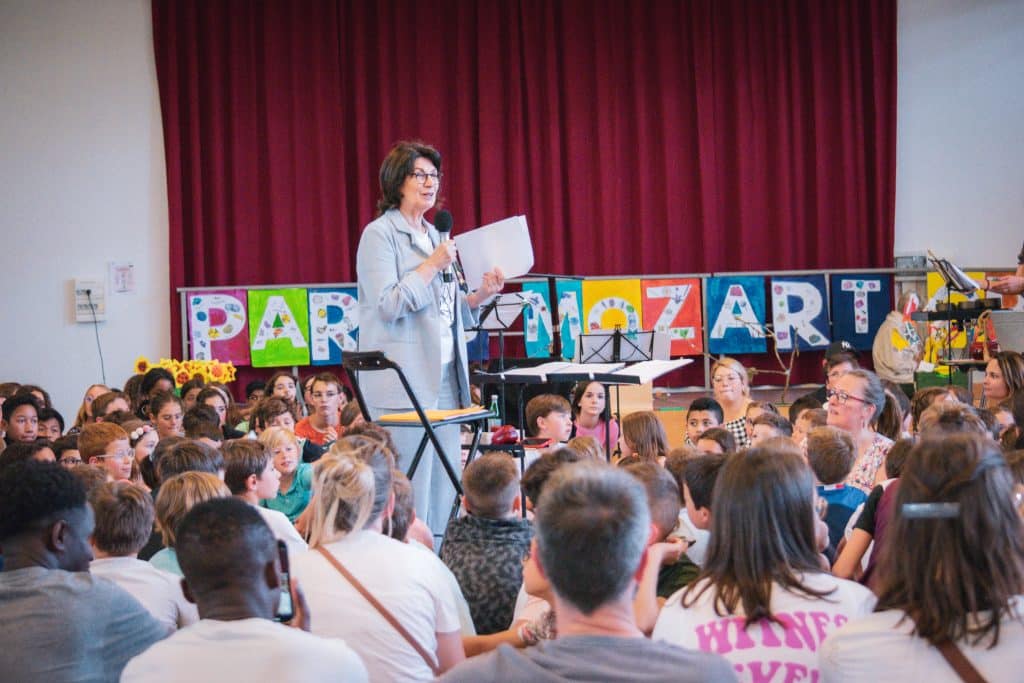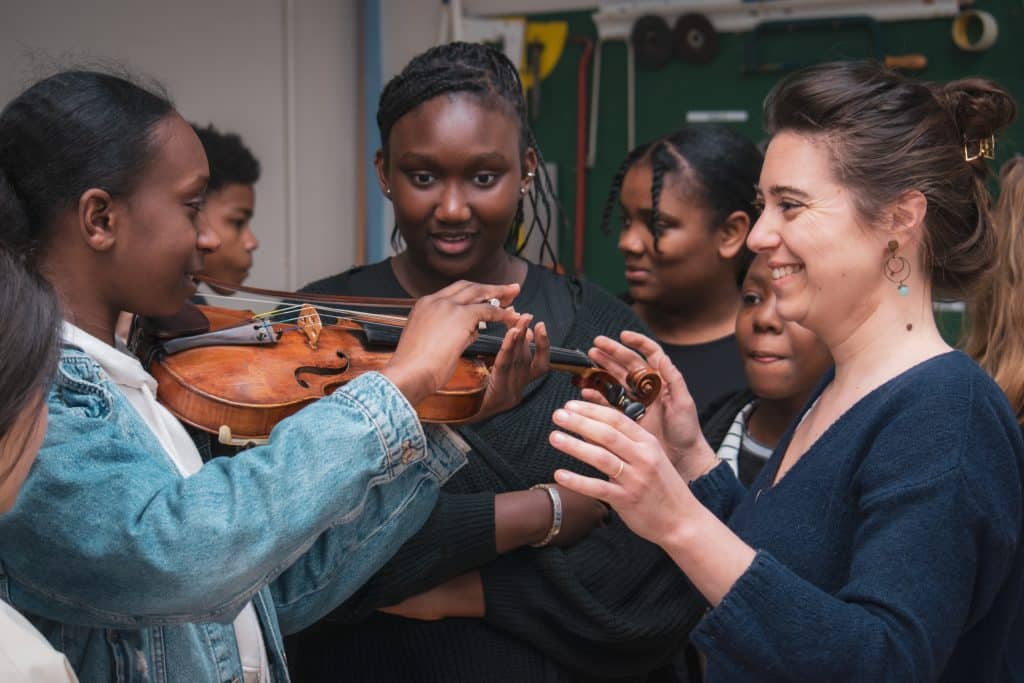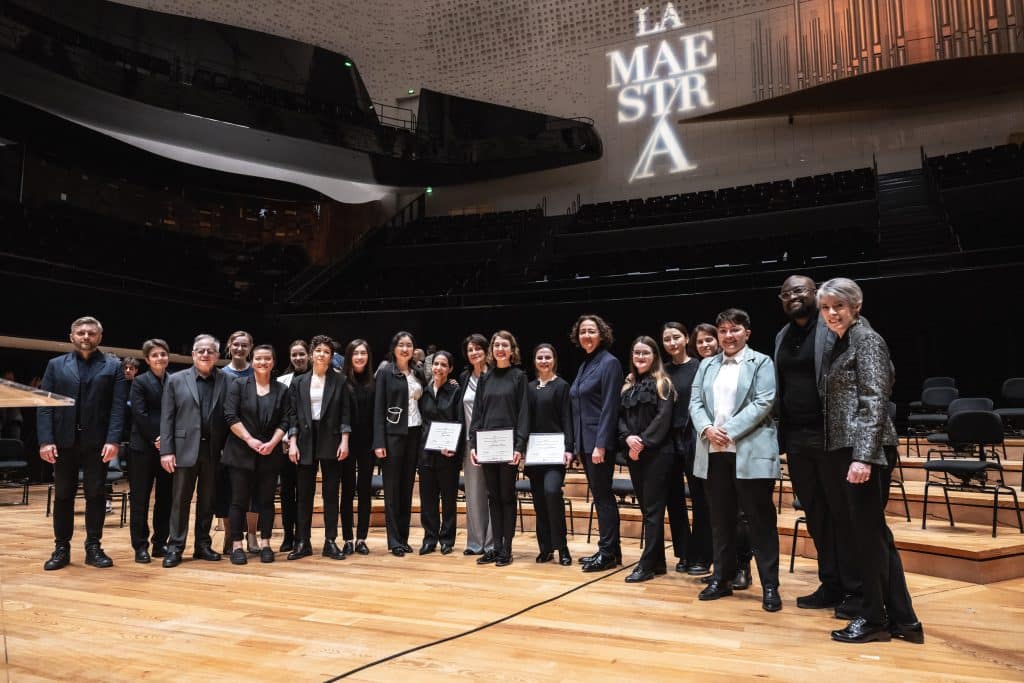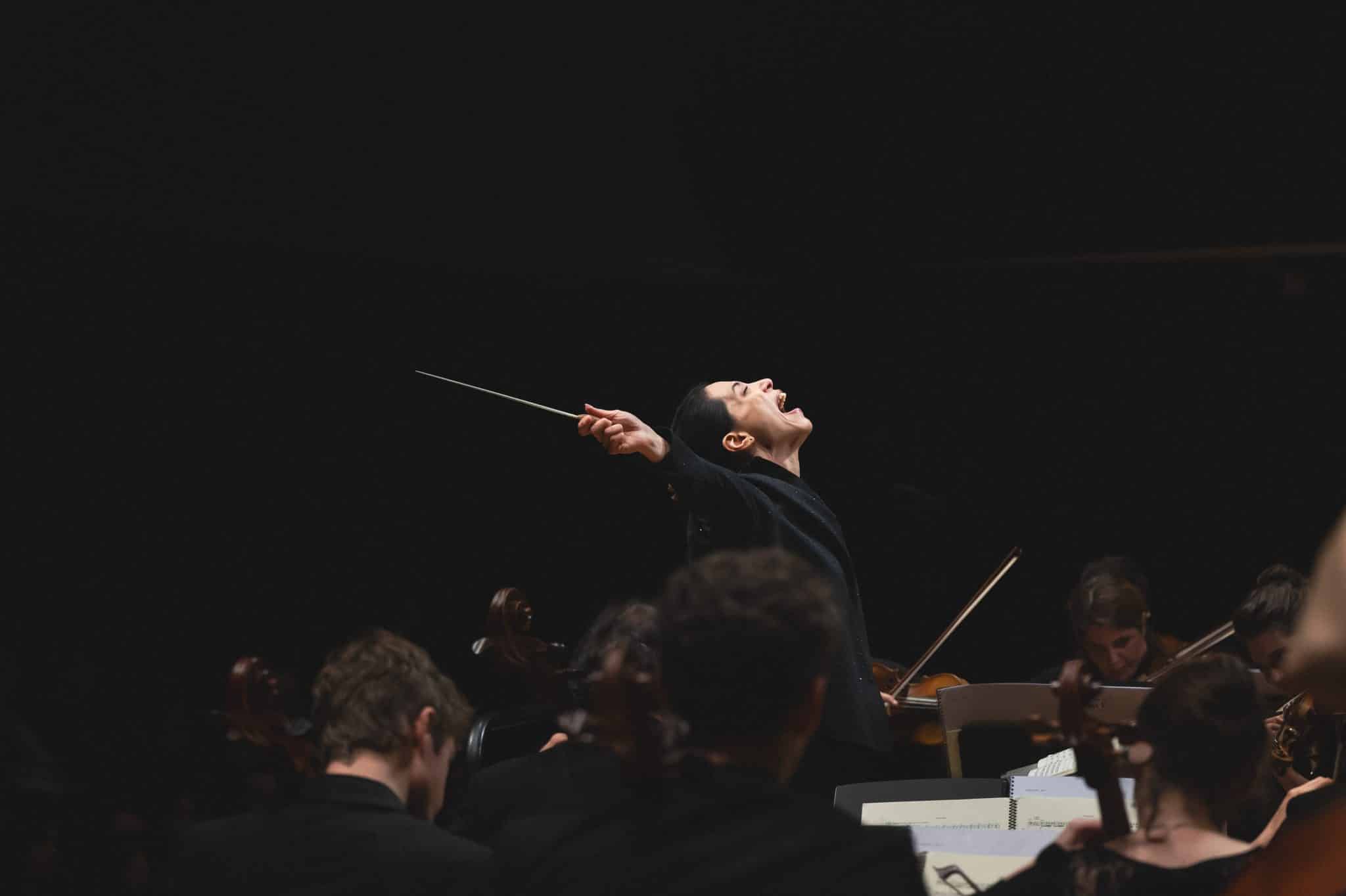A New Cadence: Discover how Paris Mozart Orchestra is Harmonizing Artistic Excellence with Social Impact
The world of classical music is often perceived as an exclusive realm, but the Paris Mozart Orchestra (PMO), founded in 2011 by visionary conductor Claire Gibault, is challenging this notion. The PMO operates with an innovative, collaborative model of independent musicians driven by a shared artistic vision and a dynamic approach to co-creation.
The PMO distinguishes itself through a strong social commitment, firmly believing that artistic and aesthetic choices are inseparable from civic responsibility. This unique structure fosters flexibility and deep personal commitment from its members, allowing the orchestra to not only deliver exceptional musical performances but also champion profound social change.More than just a performance group, PMO functions as a charitable organization that champions social inclusion, gender equity in the arts, and educational equity through a wide range of initiatives. From its acclaimed Orchestre au Bahut program that partners with underserved schools, to the trailblazing La Maestra competition for women conductors, PMO’s work proves that classical music can be both artistically excellent and socially transformative.

“The Paris Mozart Orchestra was founded with a unique artistic and social mission. Could you share how this dual commitment shapes your programmes today, and how it distinguishes PMO within the classical music landscape?”
The Paris Mozart Orchestra (PMO) was founded with a distinctive vision that intertwines artistic excellence with strong social engagement, and this dual mission continues to shape its identity and programming in meaningful ways today.
Artistically, PMO champions a repertoire that spans from classical masterworks to contemporary pieces, with a particular interest for underrepresented women composers. This commitment to innovation and inclusivity enriches the musical experience for audiences and challenges traditional boundaries in classical programming.
Socially, PMO integrates community outreach into its core activities. The orchestra regularly performs in non-traditional venues such as schools, hospitals, prisons, and community centers, bringing high-level music-making to people who may not otherwise have access to it. These performances are often participatory, fostering genuine connection and cultural exchange.
What truly distinguishes PMO in the classical music landscape is this inseparable blend of artistic ambition and social conscience. Rather than treating community work as a peripheral activity, PMO embeds it into its very identity. The result is an orchestra that not only delivers outstanding performances but also uses its platform to make classical music a tool for empowerment, education, and social cohesion.
This ethos – of excellence with purpose – positions the Paris Mozart Orchestra as one possible model as to how classical ensembles can evolve to meet the artistic and societal challenges of the 21st century.

“Social inclusion is at the heart of PMO’s work, particularly through initiatives like Orchestre au Bahut. Can you elaborate on how this programme operates and what kind of impact you’ve seen it have on students and communities?”
Social inclusion is indeed a cornerstone of the Paris Mozart Orchestra’s mission, and Orchestre au Bahut is one of its most emblematic programmes in this regard. Launched with the aim of bringing classical music into schools – particularly those in underserved or marginalized areas – this initiative reimagines what cultural access and education can look like.
Orchestre au Bahut is not about performing for pupils; it’s about co-creation, fostering talent, exploring societal issues and long-term engagement. Over the duration of the school year, conductor Claire Gibault and musicians from the PMO – as well as actors, writers or choir conductors – engage directly with pupils and teachers over a specially-commissioned socially-engaged pluridisciplinary new work. This can involve workshops in creative writing, acting and choir singing, encounters with artists, and discussions around identity and social issues. The programme then culminates in a collaborative performance where pupils and orchestra members share the stage, breaking down the traditional barriers between audience and artist. It’s a way to empower young people with the tools to explore their creativity, broaden their horizons, and connect with others in their school and beyond.
The results are powerful. Many pupils experience live orchestral music for the first time, not as passive listeners, but as active participants and creators. This builds confidence, fosters teamwork, and offers a new way of seeing themselves and their potential. Teachers report increased engagement and curiosity among students, and in many cases, the programme has helped strengthen school communities by creating a shared artistic goal.
For PMO musicians, the programme is equally transformative – it challenges them to connect, communicate, and perform in new ways, reinforcing the orchestra’s belief that art can be both excellent and inclusive.
In short, Orchestre au Bahut is a vivid example of how music can be a tool for social equity, cultural enrichment, and personal growth, resonating far beyond the concert hall.

“La Maestra has become an important platform for advancing gender equality in classical music. How does this initiative support the careers of women conductors, and what are your goals for the upcoming 2026 edition?”
La Maestra is much more than an international conducting competition – it’s a comprehensive platform for empowering women conductors and addressing the deep-rooted gender imbalances in the classical music world.
From the outset, La Maestra was designed not only to recognize excellence but to nurture long-term careers. Beyond the competition itself, which offers global visibility and high-level performance opportunities, the initiative includes a two-year Academy. This programme provides mentorship, masterclasses, professional engagements with leading orchestras and institutions, and invaluable networking within a field where access and representation have historically been limited for women.
Importantly, La Maestra fosters a community of solidarity and shared experience, where participants support each other and build lasting connections that go far beyond the competition stage.
For the 2026 edition, the goals are both ambitious and clear: to expand La Maestra’s reach and impact, welcoming even more international candidates and increasing the visibility of women conductors on the global stage. There’s a strong focus on intersectionality, ensuring that the initiative reflects and supports the full diversity of women’s experiences across cultures, ages, backgrounds, and musical styles.
The upcoming edition will also continue to build partnerships across the music industry, advocating for systemic change – not just in programming practices, but in how leadership, talent, and artistic voice are valued and perceived.
In essence, La Maestra is not only creating opportunities; it’s reshaping the future of classical music leadership – making it more inclusive, dynamic, and representative of the world we live in today.
If you want to learn more about the Paris Mozart Orchestra and its incredible initiatives, please visit their website at https://parismozartorchestra.com/.
By supporting the Paris Mozart Orchestra, you directly contribute to advancements that will shape the future of music and offer life-changing solutions to communities through their impactful programmes. If you’re inclined to help, your contribution would be greatly appreciated.



